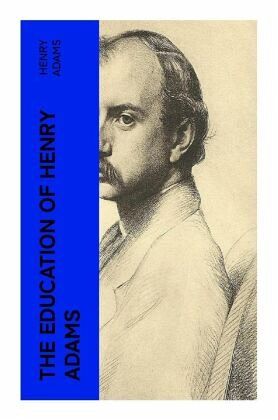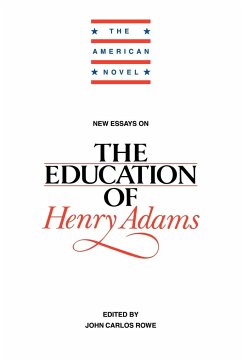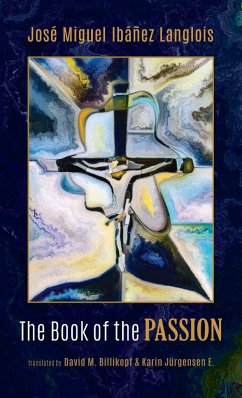
THE EDUCATION OF HENRY ADAMS
Versandkostenfrei!
Sofort lieferbar
15,30 €
inkl. MwSt.

PAYBACK Punkte
0 °P sammeln!
In "The Education of Henry Adams," Adams employs a unique narrative style that blends autobiography with historical analysis, creating an introspective examination of the rapid transformations occurring in American society during the late 19th century. The book is structured as a series of reflections and essays, where Adams grapples with the profound changes brought about by industrialization and the emergence of modernity. His prose oscillates between personal anecdotes and broader reflections on history and education, ultimately questioning the adequacy of traditional learning in understand...
In "The Education of Henry Adams," Adams employs a unique narrative style that blends autobiography with historical analysis, creating an introspective examination of the rapid transformations occurring in American society during the late 19th century. The book is structured as a series of reflections and essays, where Adams grapples with the profound changes brought about by industrialization and the emergence of modernity. His prose oscillates between personal anecdotes and broader reflections on history and education, ultimately questioning the adequacy of traditional learning in understanding an increasingly complex world. This work sits at the intersection of memoir and social critique, manifesting the conflict between the past and the relentless march of progress, a theme resonant in the literary context of the time, especially amidst the broader intellectual currents of pragmatism and realism. Henry Adams, a descendant of a prominent political lineage, including presidentsJohn and John Quincy Adams, faced a crisis of identity and purpose in a rapidly evolving America. His experiences as a historian and his deep engagement with the philosophical underpinnings of education informed this seminal work. Through his disillusionment with conventional educational institutions and the political disruptions of his age, Adams sought to articulate a new framework for understanding human progress and the role of the individual within it. "The Education of Henry Adams" is essential reading for anyone interested in American history, literature, and philosophy. It offers profound insights into the challenges of adapting to change and the search for meaning in a world where traditional values are increasingly called into question. Readers will find themselves engaged in a rich dialogue with Adams's intellect as he invites them to reflect on the nature of education and the ongoing quest for knowledge.












